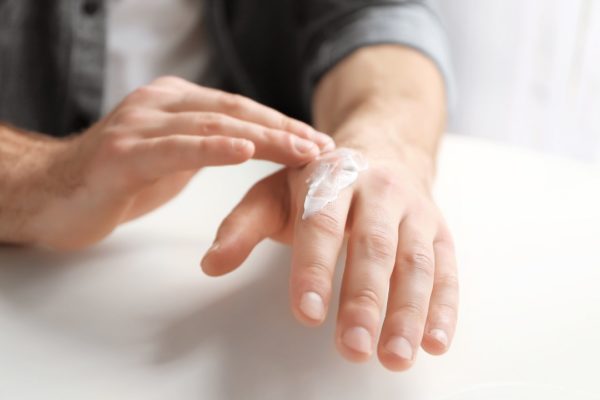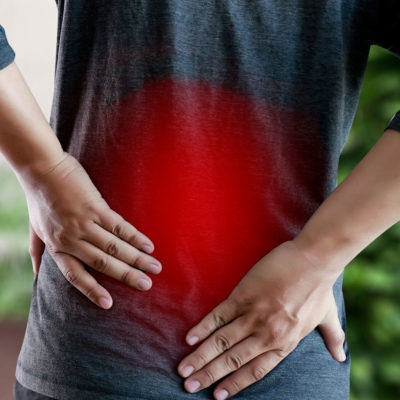As more and more people turn to cannabis to heal their ailments, a common concern is whether someone should consume cannabis if they are on other prescription medications. It’s an important question – as it’s always important to know how different medications interact with each other – no matter what type of medicine you are taking. In this blog post, we interview a Maine medical professional who is focused on patient education and shares what you need to know when making this consideration.
If you’ve been by the Wellness Connection of Maine’s South, Portland, or Gardiner locations, you may have seen Nurse Practitioner Jessica Taylor talking with patients about how cannabis and CBD can help address their specific health issues – among them depression, anxiety, chronic pain and insomnia – as well as processing certifications and recertifications.
Jessica has been a Family Nurse Practitioner since 2006. She earned a Master’s Degree in Nursing from the University of Southern Maine. NP Taylor worked in primary care, including family medicine and orthopedic surgery, for 12 years, before starting her own business, Chronic Wellness, LLC, in 2018. She now focuses on patient education and medical certification to make medical cannabis accessible to patients who are interested in using this incredibly effective treatment in order to become and remain “chronically well.”
In general, how does cannabis help with depression and anxiety?
When we inhale or ingest cannabis medicine, plant-derived cannabinoids (phytocannabinoids) are added to our bodies’ innate endocannabinoid system (ECS) and interact with CB1 and CB2 receptors in our cells. These receptors are found in the brain/central nervous system and peripheral organs/immune system respectively. The ECS reduces over-activation of mental processes, which can bring our mood into a homeostatic, or balanced, state. In the setting of both depression and anxiety, this can provide improved performance of neurotransmitters like dopamine and serotonin, which help us to feel happy and content.
What symptoms does cannabis ease for those with depression and anxiety?
Cannabis may help patients with depression develop increased interest or pleasure in doing things and improve symptoms described as “feeling down, depressed, or hopeless.” For those with anxiety, cannabis may help reduce feelings of nervousness, excessive worrying, or feeling “on edge.”
Is it safe to take both cannabis and prescription drugs?
Yes, with proper monitoring by your prescriber and a proper dosing schedule. Some medications have a narrow therapeutic index, meaning that the effective dose and toxic/harmful dose are not much different. If blood levels of medications are monitored, the prescription medications may need to be adjusted to compensate for cannabis use if levels stray from their therapeutic level. In order to reduce the liver enzymes’ ability to properly metabolize medications, it is also recommended to space cannabis use either two hours before prescription medications or two hours after prescription medications.
What do you need to consider if you are already taking pharmaceutical drugs for another ailment or illness (chronic pain, diabetes, etc.) and want to start taking cannabis, too?
It is important to know that cannabis may affect the performance of some prescription medications, and also that some prescription medications may affect the performance of your cannabis medicine. Sometimes this is dependent on the form of cannabis being used. Inhaled, sublingual, and oral cannabis will increase the effects of opiate pain medications. This is also true for the class of anti-anxiety medications known as benzodiazepines (ex: alprazolam, lorazepam, clonazepam, diazepam). The effects of orally administered cannabis (edibles and/or capsules) can be increased or decreased when combined with certain prescription medications. Additionally, some cannabinoids can increase or decrease the effect of the CYP450 liver enzymes that metabolize many prescription medications. This means that depending on the drug, cannabis may make the level of the drug increase or decrease in the body.
What is the best way to talk to your doctor about taking both pharmaceutical drugs and cannabis?
It is my opinion that honesty is the best policy. Whether or not your healthcare provider is a proponent of medical cannabis, it is important to be transparent about medical cannabis use, so that your provider is aware of all the treatments you are using. Patients may require reduced doses of opiate pain medication and/or benzodiazepine anti-anxiety medications when adding cannabis to their treatment schedule.
What is the best way to figure out the appropriate dose of cannabis while you are using pharmaceutical drugs?
I would recommend making only one change at a time. Start by adding the lowest dose of cannabis, in whatever delivery system one chooses to use (inhalation, tincture, edible), which provides a positive effect on your symptoms and increase only every 2-3 days if symptoms are not alleviated by the starting dose. Once symptoms are controlled, if patients want to consider reducing prescription medications, they should discuss this with their prescriber. Cannabis dosing may need to be again adjusted if/when prescription medication doses change and symptoms stabilize.

The above questions were posed by WCM staff to Family Nurse Practitioner, Jessica Taylor, of Chronic Wellness, LLC, in order to provide education and information to current and future Wellness Connection Members. These answers have been formulated based on NP Taylor’s anecdotal and observational experience working with patients, as well as her medical expertise and medical opinion. This should not be considered medical advice and/or is not a substitute for a conversation with one’s primary healthcare provider.




